News & Announcements
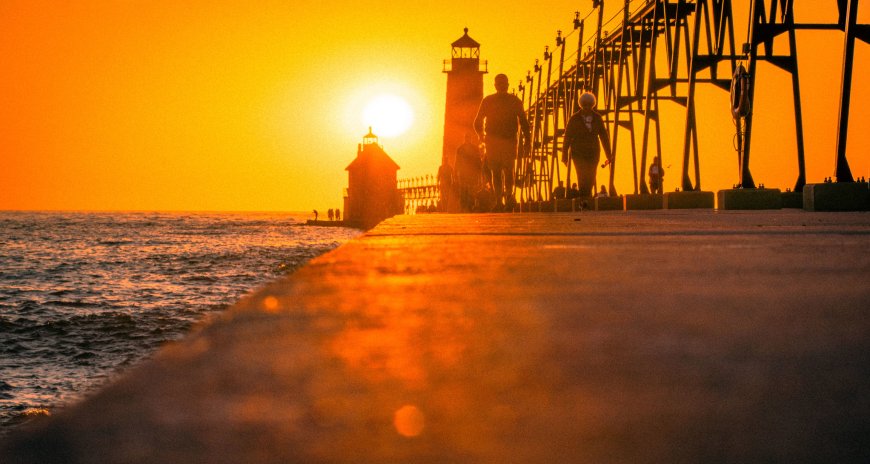
5 things Great Lakes research does for Michiganders
The Great Lakes are at the heart 💙 of life in Michigan—and the science behind them is working hard for all of us. Here are five important ways Great Lakes scientists from CIGLR and Michigan Sea Grant at UM-SEAS benefits Michiganders: [click image to read more]
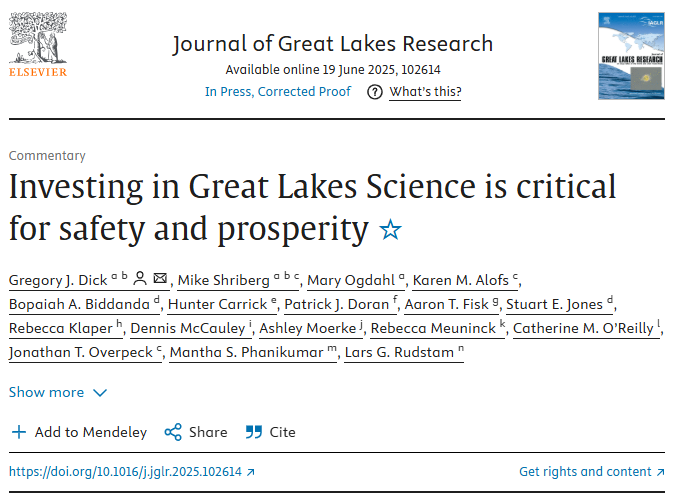
Investing in Great Lakes Science is critical for safety and prosperity
NEW! Scientists from Michigan, Wisconsin, Minnesota, New York, and Ontario, have published a commentary in the Journal of Great Lakes Research, warning that the future of the Great Lakes is at risk without continued investment in scientific research. They urge that these efforts be shielded from proposed budget cuts and emphasize that without funding, the lakes and those who depend on them will face growing challenges. [click image to read more]
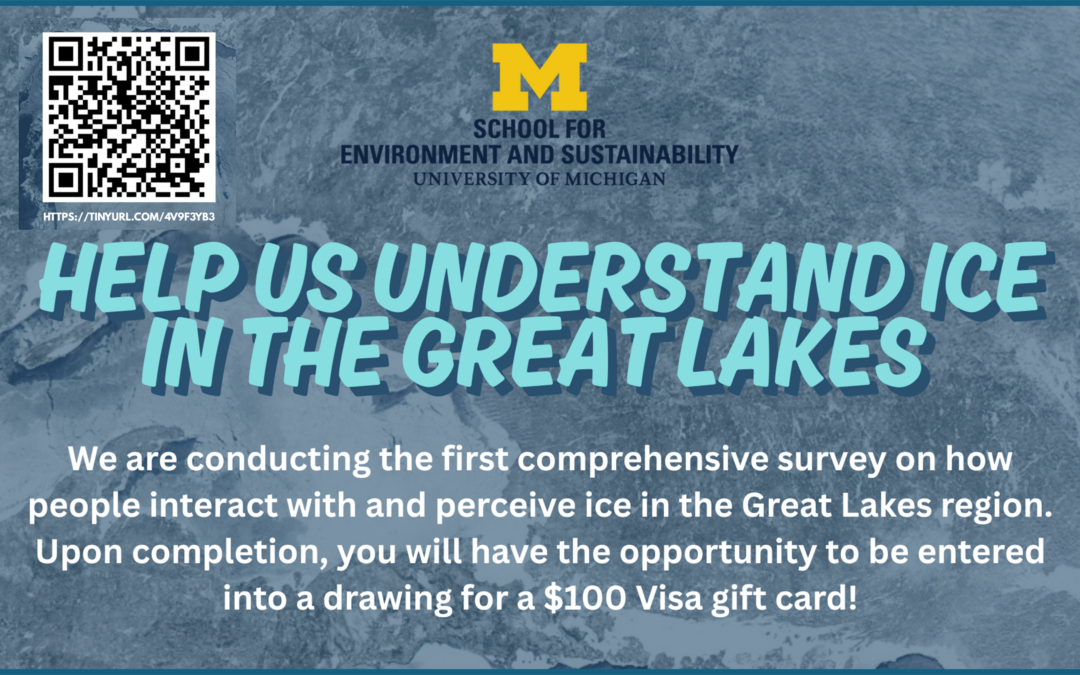
Help Us Understand Great Lakes Ice
Help spread the word! How does ice impact life around the Great Lakes? Click the image to share your experiences in the survey.
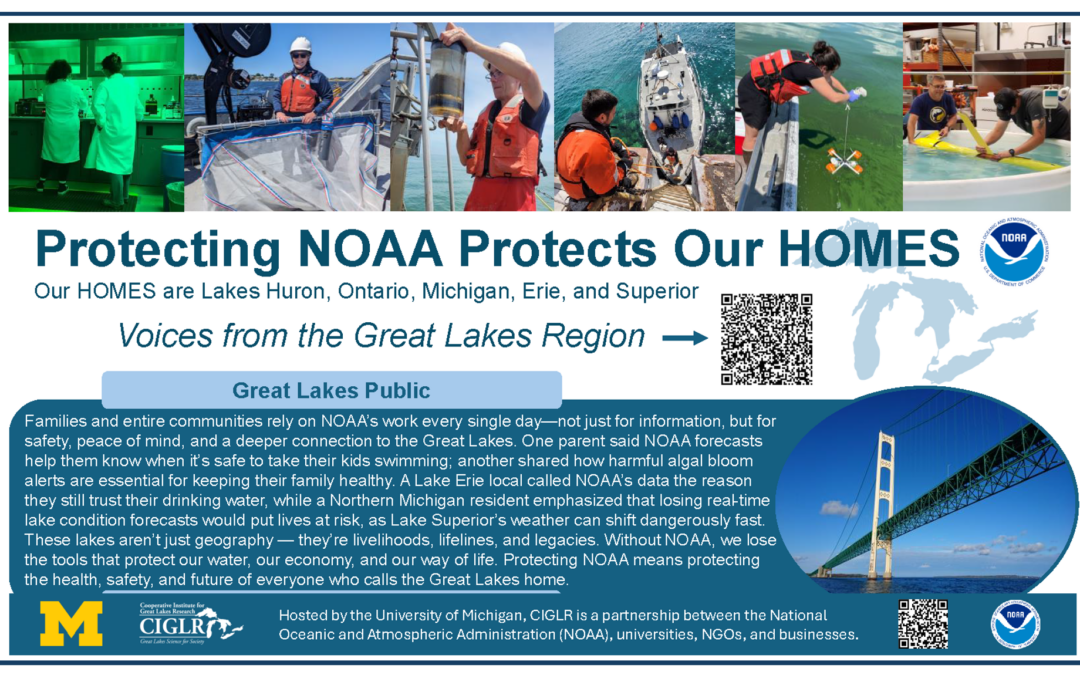
Voices from the Great Lakes Region
Voices across the Great Lakes region are speaking up: Protecting NOAA means protecting our water, our communities, and our way of life. Add your voice! Show your support for NOAA and Great Lakes science!
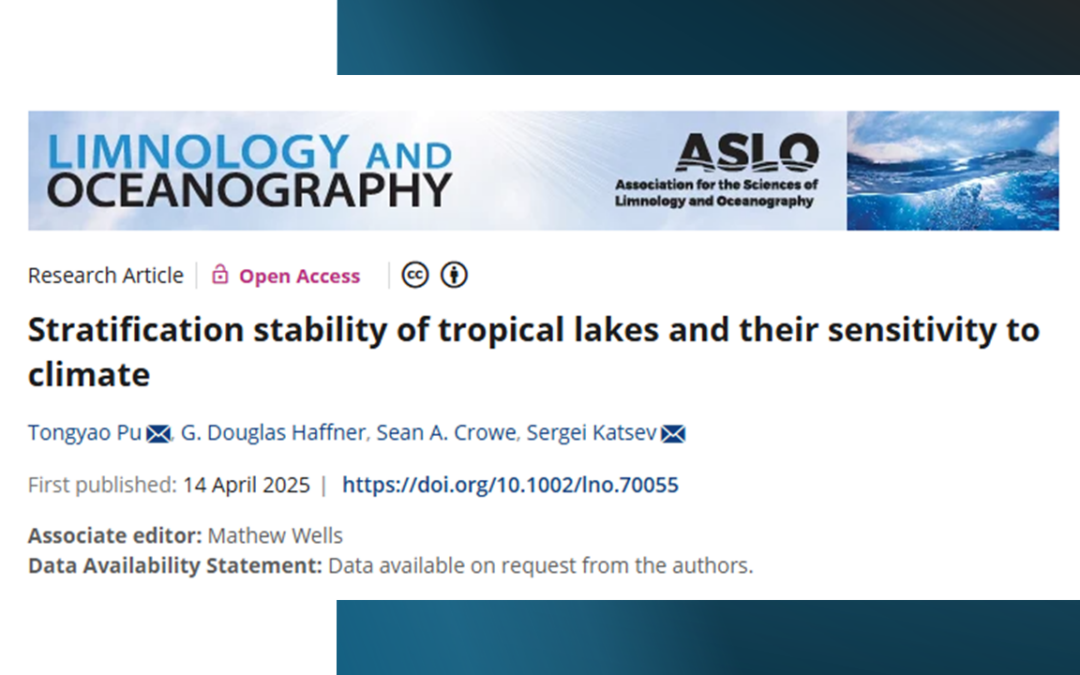
Congrats to CIGLR’s Tongyao Pu!
Congrats to CIGLR’s Tongyao Pu on publishing her Master’s thesis in Limnology & Oceanography! This study investigates the stratification of Indonesia’s Lake Towuti using one-dimensional hydrodynamic & redox chemistry models. Click on the image to read article.
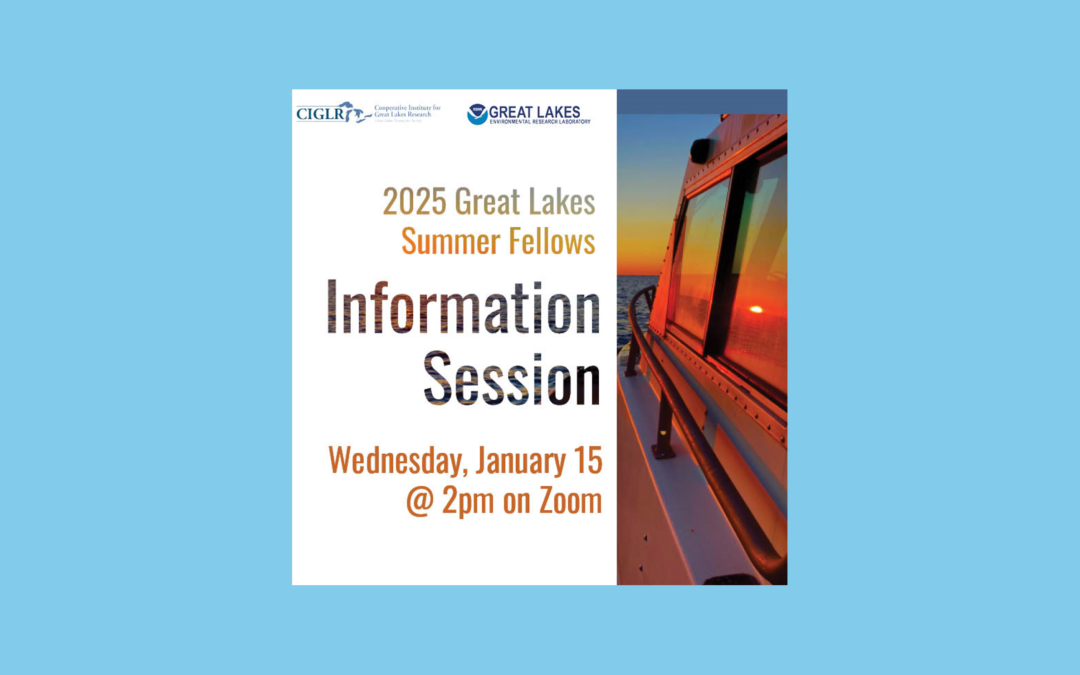
2025 Great Lakes Summer Fellows Information Session
Join us for a virtual info session TOMORROW, Jan 15 @ 2pm EST! We will talk about the program, give an overview of the application process & timeline, & answer your questions. Click on the image for 2025 Summer Fellowship and registration information.
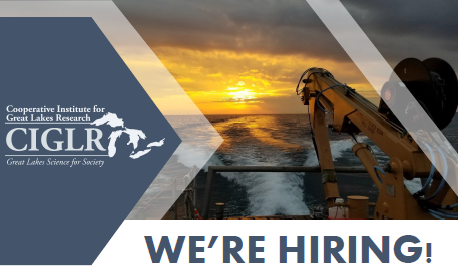
We Are Hiring! 2 Positions!
Come work with us! CIGLR is hiring 2 positions: 1) Research Engagement Specialist, closes January 19, 2025 and 2) Postdoc Fellow in Molecular Ecology, closes February 1, 2025. Click image to learn more.
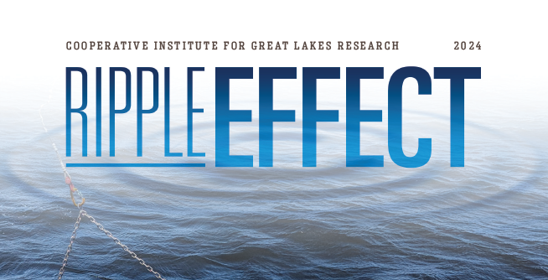
2024 Magazine: Ripple Effect
The 2024 issue highlights CIGLR’s seventh All Partners Meeting, new multimillion-dollar research awards, provides research institute and regional consortium updates, and introduces new staff, students and fellows. If you are interested in a .pdf or print version of the magazine, please contact CIGLR at: [email protected].. Click image to read.

Oregon State University is Hiring 2 Postdocs!
Our colleague Maria Kavanaugh and the Seascape Ecology Lab at Oregon State University will be hiring at least two postdoctoral scholars, a phytoplankton ecologist and seascape ecologist, to work on projects related to biodiversity and ecosystem functioning in US coastal waters, contributing to the Great Lakes Marine Biodiversity Observation Network (MBON). Click image for more information and how to apply.
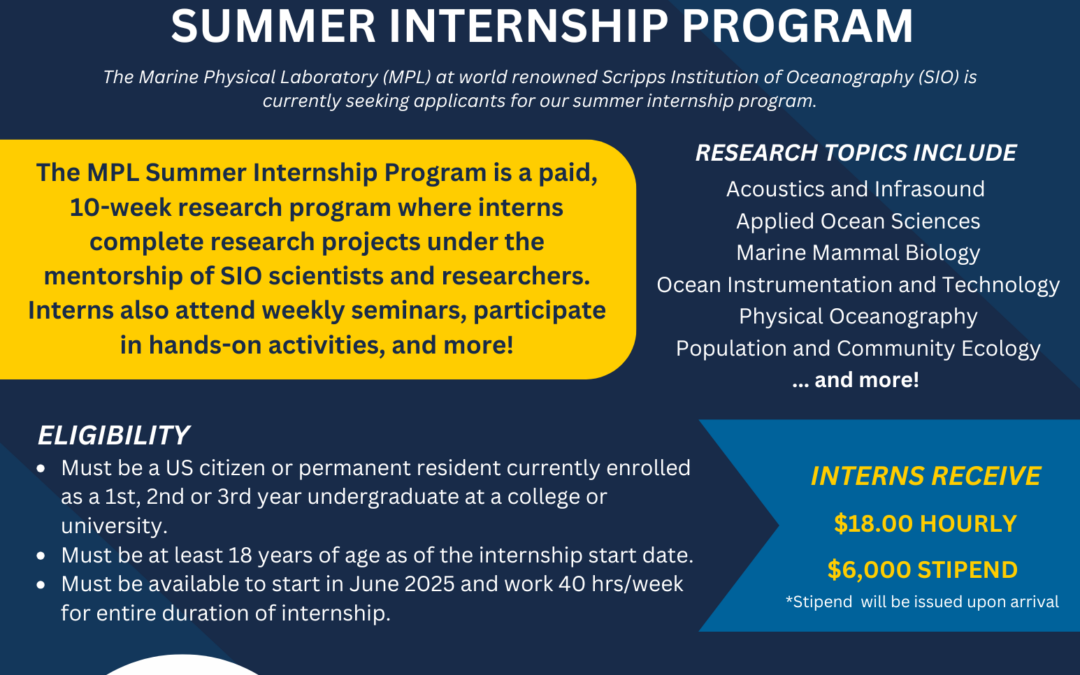
Student Opportunity at UCSD Scripps!
Our friends at the Marine Physical Laboratory (MPL) at the prestigious Scripps Institution of Oceanography, University of California, San Diego are currently seeking inquisitive, motivated undergraduates w/ exceptional aptitude for quantitative science & technology to apply for the 2025 MPL Summer Internship Program. Click image for more information.
